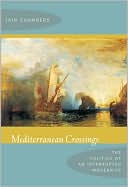

 |

|

The average rating for Mediterranean Crossings: The Politics of an Interrupted Modernity based on 2 reviews is 3.5 stars.
Review # 1 was written on 2011-03-04 00:00:00 Loren Andrews Loren AndrewsThis book speaks from a mixed Braudelian/Foucauldian/world systems perspective. It has really only a few points to make, but it expresses these points in many different creative and beautiful ways. This is not a history, it is a 200 page long, meandering, pondering bit of musing on Mediterranean discourse and what it means. Chambers emphasizes a) the mutability, the constant change in the region (resisting the categorizations of modern politics) b) how Mediterranean space has been 'mapped' by borders as manifestations of power (Foucault's "biopower") and how immigration is now a symbol of the injustice of this c) how discourse has shaped the mentality of the region, particularly the North/South divide (which, as world systems would have it, depends on the South being kept poor for the North's system to survive- which is like, not off the wall when you think about the effed up CAP) and d) How reasserting voices from the silence does not complete the picture as post-colonial studies would have it, but rather questions the frame of modernity itself (whose notion of linear "progress" he utterly rejects). At times rather mystical, with sentences that can be repetitive and obscure, I loved this tome. It's filled with passion, and beautiful disquisitions on subjects ranging from maps to music, from food to immigration detention centers. As I am wrestling with 'thinking' the Med myself for my thesis, it was helpful to watch someone else do it. I expect to return to this volume several times over the course of the next year |
Review # 2 was written on 2020-09-23 00:00:00 Lonnie Lindsey Lonnie LindseyThe first three chapters deserve two stars at best, however chapter 4, which focuses on Naples, deserves 5. This is not a conventional history book by any means. It is a poem, written out of love for the Mediterranean. There are moments when the the pages become so theoretical, short of entering the author's head it's nearly impossible to decipher what is being written. But these passages are interrupted my lucid moments that combine phenomenology with world systems theory, and are a pleasure to read. The overall thesis of the book is that we need to move beyond the 'ocular logic' (of the enlightment tradition) as the process by which we perceive the Mediterranean. By approaching other senses first, such as taste (Mediterranean cuisine) or hearing (Mediterranean music), we can shift our perception of the Mediterranean from its being a frontier to its being a 'melting pot'. Only in changing this underpinning perceptual logic, can we we critique the 'blockages' to the Mediterranean's 'fluidity', namely borders. Personally, I love this thesis. This book is not an argument however, and so the writings form (and my peeve) is also its content. It's an attempt to capture the Mediterranean in a way that doesn't prioritize the visual. This is clear from the introduction, and the author's concern about the impact of written word. |
CAN'T FIND WHAT YOU'RE LOOKING FOR? CLICK HERE!!!